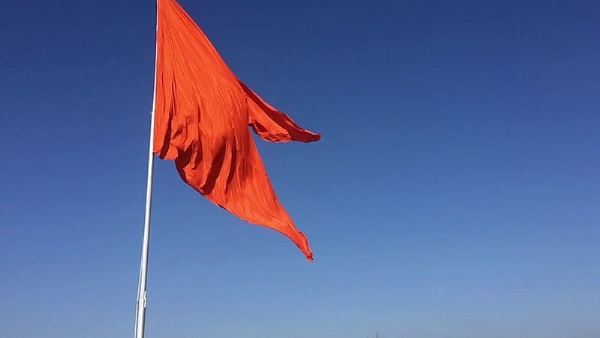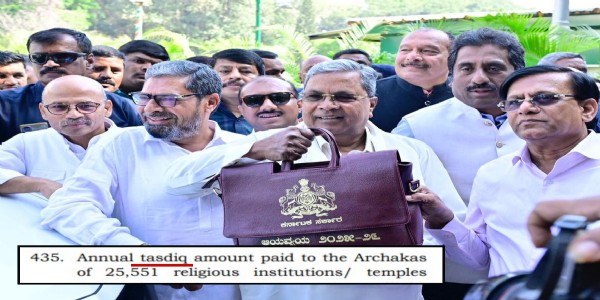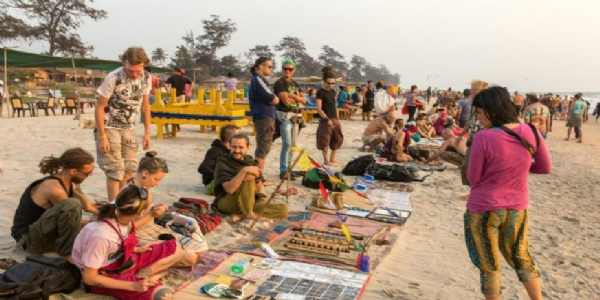Saffron ban continues in temples! After Vellayani temple, Kerala police ask Karikkakam Chamundi temple to remove saffron flags put up for festival
Police threatened the temple festival committee with strict actions if it violated police directives against using saffron flags or decorations.
Total Views | 187
Thiruvananthapuram, March 28 : In yet another incident targeting Hindu temples, months after the authority of the Communist party-led state government instructed to avoid the use of a saffron flags during the festival at Vellayani Bhadrakali Temple, now a similar kind of circular has been issued to the Karikkakam Chamundi Temple.

Karikakam Sri Chamundi Temple is one of the oldest and most famous temples in Kerala. The famous Karikakam Devi Darshan Temple is located on the banks of the river Parvati Puthanar, 5 km northwest of the Sri Padmanabhaswamy Temple in the city of Thiruvananthapuram.
Also Read | Anti-Hindu govt? Kerala govt targets Hindu temple, instructs to remove saffron flag put up for a festival
As per media reports, Kerala police have asked the temple trust to remove saffron flags and torans from the decorations as part of the festival celebrations. The police warned that legal action would be taken if the flag was hoisted without the permission of the ACP.
Police threatened the temple festival committee with strict actions if it violated police directives against using saffron flags or decorations. Trust officials said that the ACP threatened that if the flag was tied, the police would take it down and take legal action. The devotees have alleged that the police are helping the anti-Hindu elements in the state.
Saffron ban continues in Temples
— HKupdate (@HKupdate) March 27, 2023
After controversial police directive in Vellayani temple, Police orders saffron free festival in Karikkakam Chamundi temple in Thiruvananthapuram
Police threatened temple festival committee of strict actions if violates police directive against… pic.twitter.com/NDrUMYdKEN
It should be noted that earlier, police visited the Vellayani Bhadrakali temple located on the southern outskirts of Thiruvananthapuram in Kerala and instructed the temple authorities to avoid saffron-coloured buntings, flags, and other fabric on the premises for the upcoming Mohotsav.
According to the police, the temple should use fabrics, flags and buntings of all colours, not just saffron, even though traditionally the temple is decorated with saffron during the festival.
Also Read | Victory to Devotees! Police can't insist to use only politically-neutral colours in temple, says Kerala HC
However, the Kerala High Court turned down their order and said that the administration can’t meddle with the customs, rituals and practices of the temples. The High Court said that the Travancore Devaswom Board has the right to decide on conducting the festival and that the festival has to be conducted in accordance with the custom, rituals and practices of that temple.
.
.
Bharati Web







